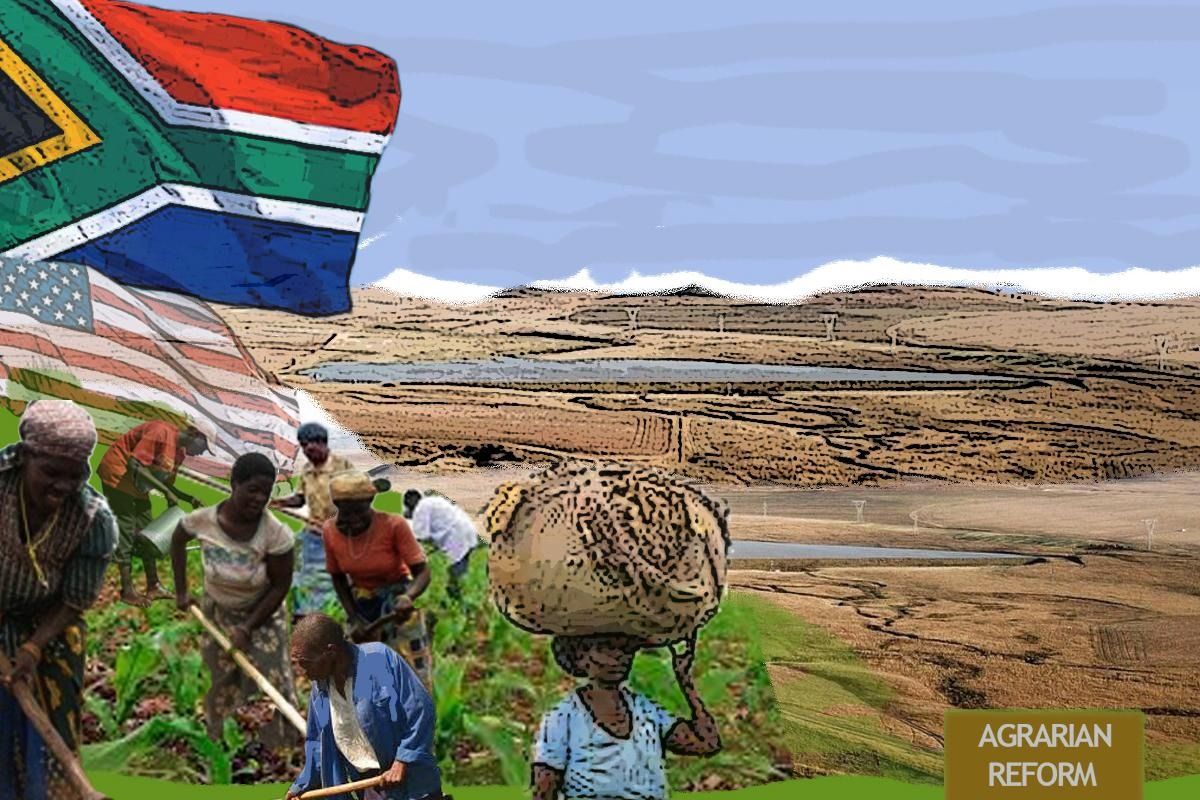South African Land Issue: Southern and Eastern African La Via Campesina Denounces US Sanctions and Calls for Comprehensive Agrarian Reform

La Via Campesina Eastern and Southern Africa (LVC SEAf) region strongly denounces the recent US imposition of sanctions and withdrawal of vital health aid to South Africa following the government’s enactment of an Expropriation Act aimed at accelerating redress for the colonial land injustices.
Within the broader context of the restructuring of the global power structure, South Africa’s strong stance in defence of Palestine and its people was taken as a formidable blow to western hegemony and global Zionist elites. Following this dynamic, the USA President, Donald Trump, in justifying his decision to withhold aid, claimed the new Act to be massive human rights violation of certain classes of people (mainly land barons and inheritors of White colonial rule). It is claimed they risk being negatively affected if the South African government carries out land expropriations without compensation.
The South African President, Cyril Ramaphosa, signed the Expropriation Bill into law on 23 January 2025. The new Act will among many things align the country’s land reform programme to the constitution. The bill establishes a new concept of “just and equitable” compensation, substituting the previous ‘willing buyer, willing seller’ approach.
Since 1994, when South Africa attained independence, land reform has been a constitutional priority to correct the land dispossession injustices (which as a result of the 1913 Native land Act led to over 70% of agricultural land owned by a few White commercial farmers) through restitution and equitable access to land. A target to redistribute 30% of the agricultural land by 2030 was set. By end of 2024, the South African Government is claiming to have redistributed 25% of South Africa arable land1.
South Africa has been struggling for decades to reduce poverty, inequality (its gini coefficient of 63.0 is the most unequal country in the world2), and unemployment which is currently hovering over 31%3. A large number of people (about 12 million) live in extreme poverty, with around 40% (25 million people) living in poverty4.
Comprehensive Agrarian Reform is critical for building food sovereignty and peace in South Africa. We, LVC SEAf, demand that the US respect the steps being taken by the South African government redress the colonial injustices and promote the prosperity, dignity, justice, unity, equality and peace of its citizens. Agrarian reform and land redistribution are some of the vital solutions to tackle high poverty, inequality and unemployment in South Africa.
Finally, we reaffirm our commitment to mobilizing collective indignation to confront the actions of AgriSA5 and the Afriforum6, which seek to maintain colonial land injustices. We denounce all and any form of oppression and injustice. As a region, we stand in solidarity with our member organisations in South Africa, the Landless People Movement (LPM) and the Agrarian Reform Campaign for Food Sovereignty (FSC), and all those who are struggling for access to land as a way of emancipation.
Enough Injustice! As a region, we commit to building strategies to confront imperialism, colonialism, racism, patriarchy, xenophobia and all forms of violence and domination.
Amandla Awethu!
Globalise the Struggle! Globalise Hope!
1 https://theconversation.com/this-is-how-president-ramaphosa-got-to-the-25-figure-of-progress-in-land-reform-in-south-africa-226135
2 https://worldpopulationreview.com/country-rankings/gini-coefficient-by-country
3 https://www.thepresidency.gov.za/deputy-minister-mhlauli-welcomes-continued-decrease-unemployment-rate
4 https://www.statssa.gov.za/publications/P03101/P031012024.pdf
5https://agrisa.org.za/media-releases/private-property-is-the-cornerstone-of-agricultural-sustainability-and-food-security/
6https://www.theafricareport.com/377103/trump-musk-and-afrikaner-farmers-unpacking-south-africas-land-reform/
